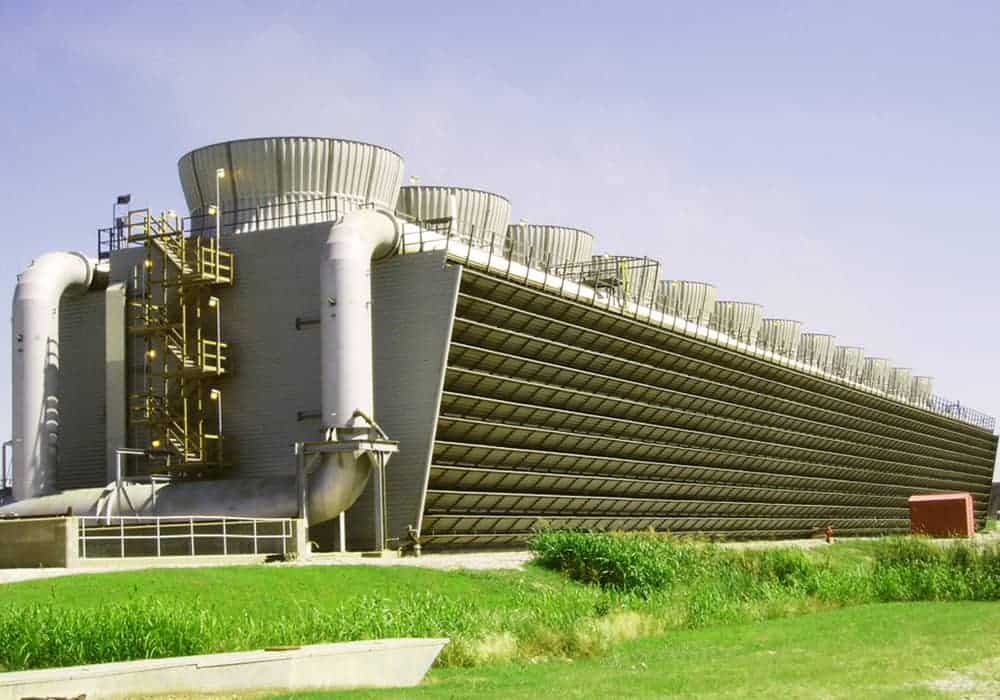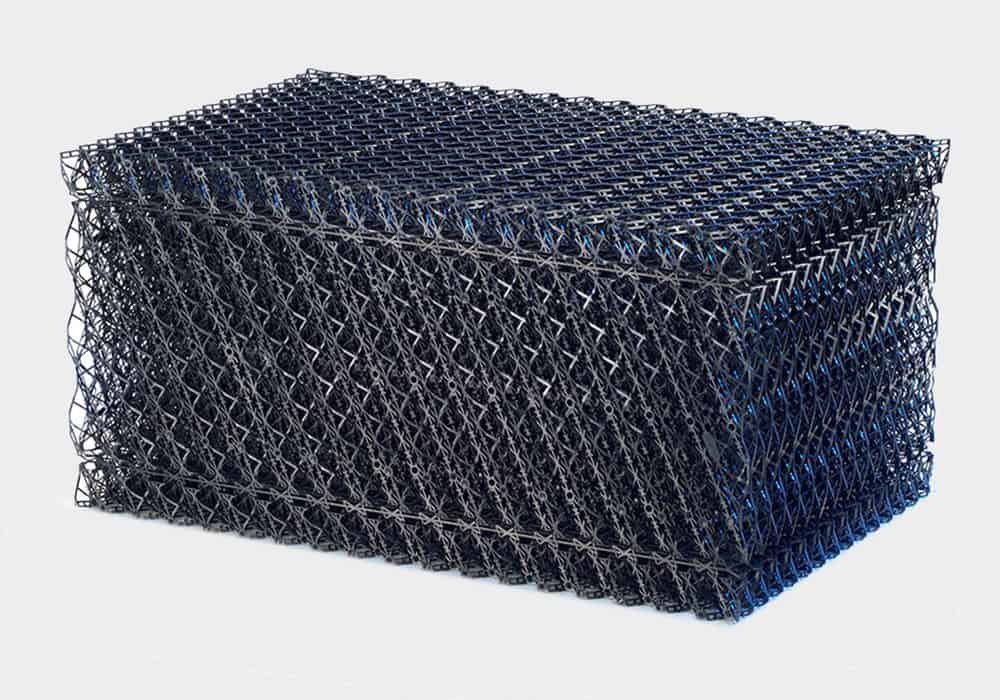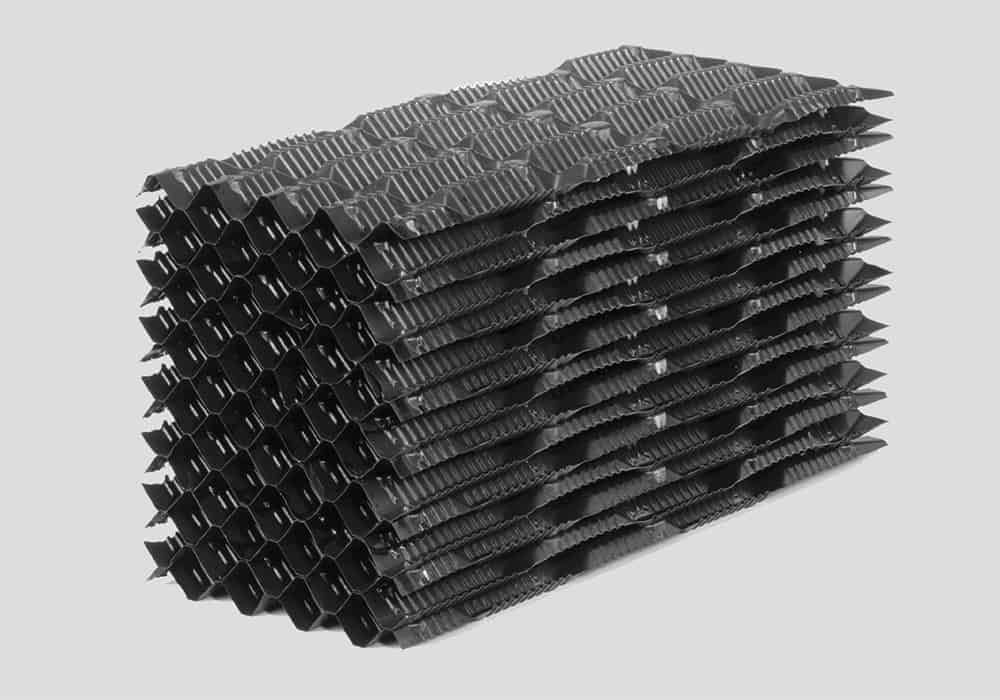If you’ve never worked with cooling towers before, you may be led to believe that the water inside the tower plays the most crucial role. And while water is integral to the function of cooling towers, the true heart of any tower is the fill.
Since 2002, Marley Flow Control has been an industry leader in the manufacturing of cooling towers. We are an Australian-owned and operated brand that offers a high level of expertise and an extensive range of products that are ready to order. Our wealth of knowledge has allowed us to work with some of the country’s largest businesses and corporations we are pleased to call our clients.
As industry leaders, we have a high level of expertise and can provide a wide range of cooling tower services. If you need help with your cooling tower, contact our highly experienced team to discuss your options today.
So why are fills so important, and what is their function? What is the difference between a splash fill and a film fill? Read our helpful blog to learn everything you need to know about your cooling tower fill.
How do cooling towers work?
Before we can discuss the role of fills in a cooling tower, it’s essential to understand how these towers work.
Firstly, hot water is distributed over the top of the cooling tower. Nozzles spray the water over the cooling fill. This exposes the water to ambient, cool air.

Using several large fans, cold air is blown past the warm water, causing some liquid to evaporate. This evaporation process is what cools the water. The heat leftover is then transferred from the water stream to the air stream, raising the temperature and humidity. The hot air is then released into the atmosphere, leaving behind cooled water.
Water is then collected at the cold water basin of the tower, ready for the pumps to recirculate cold water through the system again.
What is a cooling tower fill?
The cooling tower fill is a medium used in cooling towers to increase the surface area of the tower. Its primary function is to put as much water surface area in contact with as much air as possible, for as long as possible. This allows for greater evaporation rates.
The two most popular types of fills are:
- Splash fill
- Film fill
Splash fill VS film fill
Splash fill
A splash fill is made from many layers of slats or bars. When hot water cascades through this series of slats or bars, the liquid breaks down into smaller particles – in simple terms, a splash fill is designed to interrupt water flow and cause splashing. This allows for increased contact between the water and air, which is then contained within the atmosphere.

Originally, splash fills were made from wood. But modern splash fills are made from PVC, which allows for a greater heat transfer. And because splash fills converts liquid into tiny droplets, dirt and debris are easily separated from the water. This makes them the perfect choice for industries that produce poor quality, excess water – like mining and chemical facilities.
Advantages of a splash fill are:
- The water can redistribute on multiple levels
- General maintenance can be performed via a simple visual inspection, thanks to its wide, open construction.
Film fill
Unlike a splash fill, a film fill is made of many thin sheets of PVC, placed very close together. As the water forms thin flowing sheets across the fill, a large surface area is created, allowing hot air to circulate and contact the film of water.
Any dirt or debris in the water is collected on the film of the fill.
The advantages of a film fill are:
- It exposes the water to a larger surface area, increasing the efficiency of the tower
- It’s fully customisable to suit the function of the tower
- Quick and easy installation
- Self-extinguishing for an excellent fire rating.
Fill profiles
Fill profiles are the patterns, ridges or wrinkles in a fill. Typically fill profiles are designed to force the water to take the longest route along the fills as possible.

Small flutes allow for more capacity per cubic foot, making them more efficient than larger flutes. However, large fill profiles are less likely to get clogged with dirt than smaller fill profiles. This makes them the perfect option for industries like steel mills, as they use low-quality water.
In extreme cases with dirty water, a bar type fill can be used. A bar type fill takes the form of splash bars throughout the tower, allowing for larger debris to be passed through. It may be the least efficient fill, but a bar type fill is easier to clean and is more effective at processing dirty water.
Marley Flow Control: Australia’s leading cooling tower manufacturer
Marley Flow Control is the Australian distributor for the SPX (Marley) cooling tower range. We will help choose the correct product according to the thermal duty, noise and space limitations, environmental conditions and water conditions.
Australian owned and operated, we are a well-known and trusted brand that offers a high level of expertise and an extensive range of products ready to order. Additionally, we provide a comprehensive cooling tower inspection and repair service. We provide repair work on the fill and mechanical components and a full functional annual assessment. Afterwards, we provide a comparison between a comprehensive refurbishment or a new cooling tower.
Our experienced team has the skills and equipment to fit new motors, driveshafts, gearboxes and fans in the field, including long laser alignments of up to four metres.
Find out how we can use our engineering experience to help find the right solution for your business needs. Contact us here for a free quote.
